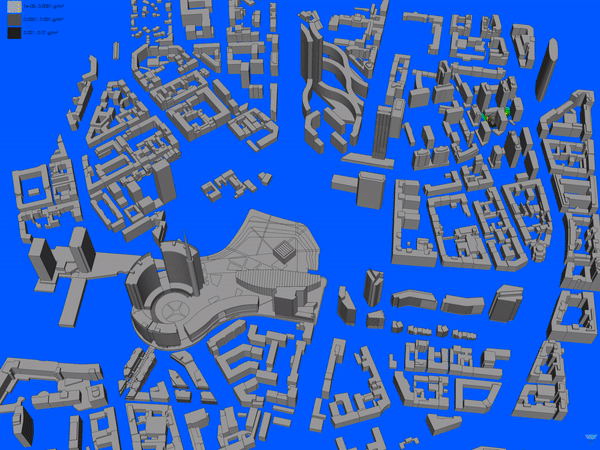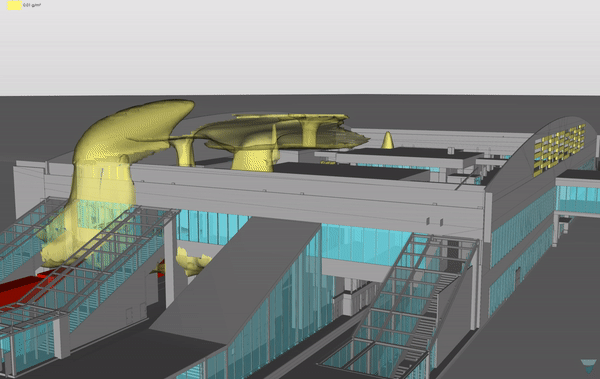
Risk Analysis
With VENTO AEC you can proactively shape a risk reduction strategy to preserve the safety of buildings and protect people’s health in both outdoor and indoor environments
01
Enhance environmental safety through preventive analysis
02
Optimize evacuation plans and fire protection systems
03
Achieve top-notch Fire Safety Engineering analysis (FSE)
01
The threat of fire and potential pollutant spread poses substantial risks to individuals, structures and the environment. Understanding propagation dynamics is vital for efficient risk management and to undertake protective measures.
This case study demonstrates a simulated car fire incident in a Milan city block.
The video illustrates a 10-minute transient showcasing the transport and diffusion of smoke. Clouds depict concentrations ranging from 10 µg/m³ to 100 mg/m³, while the ground map shows the diffusion at ground level in log scale.
02
Smoke propagation in indoor environments is extremely threatening for the safety of building occupants in case of fire.
In this case, we conducted a simulation to investigate the dispersion of smoke and carbon monoxide resulting from a car fire at a train station, and how it would possibly impact the evacuation plan.
The 5-min transient simulation shows how the heated smoke ascends from the platform level to the concourse level using various routes, including escalators.
The 3D model in IFC format was generated by Revit.
Courtesy of Italferr
03
VENTO AEC’s performance in smoke and heat simulation perfectly mirrors the capabilities of FDS (Fire Dynamics Simulator). Explore further in the benchmark case.


